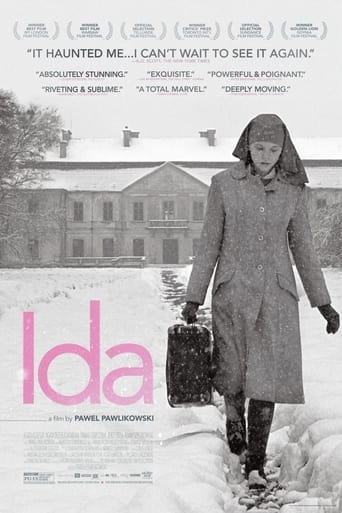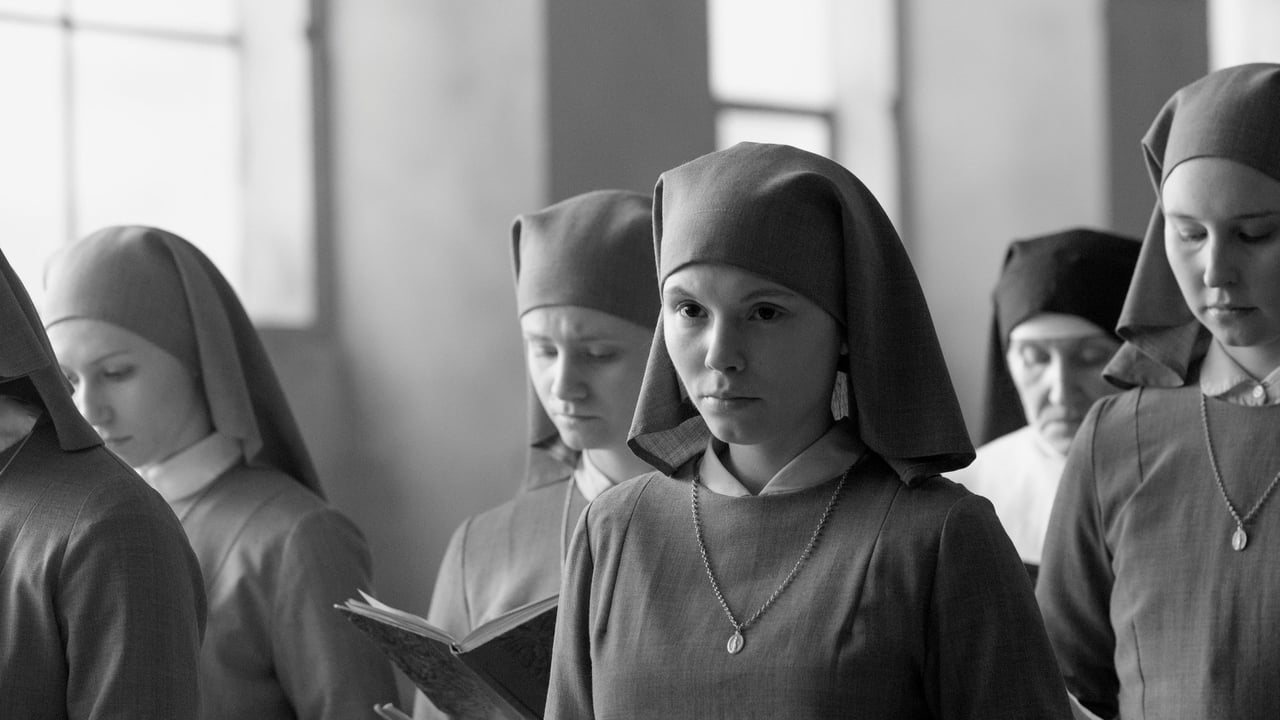Nigel P
I believe they call this kind of film 'world building.' It's an apt description of the results of a talented production team using budget and effects to sustain a convincing environment in which you can immerse yourself. In my view, such is the potency of projects like this, actors are there primarily to compliment this imagined civilisation. In 1982, the original 'Blade Runner' achieved this perverse enigma very convincingly. Here all these years later, is the sequel.There was some mild controversy concerning original composer Vangelis not being assigned to provide a soundtrack for this, but Benjamin Wallfisch and Hans Zimmer's score is impossible to fault. Vast, weird, laced with industrial swirls and chunky klaxons. Denis Villeneuve's direction is vast and eccentric, exactly as it should be, and the myriad of art directors ensure that the society, the interiors, the streets, even the habitat of Rick Deckard (Harrison Ford of course: grizzled, isolated, but still very much the same character we knew 35 years ago) is as impressive and spacious as it could be, an arena so absorptive and convincing, you can completely drink it in. My problem is, at 2 hrs 44 minutes, I really felt the need for a change of flavour after a while.It's impossible to be impressed at wonderful representations of an intricately carved tale for that length of time with no change of tone throughout, no levity, no particular sense of strident drama and only an irregular threat (Sylvia Hoek's splendid Luv). We have K (Ryan Gosling) and his girlfriend Joi (Ana de Armas, who, as a perfectly pouting, characterless hologram, is very good) and the very slow story of Deckard's 'improbable' child Rachael, and the long trek to locate her. It is good, but thinly stretched over such huge running time. Wrapping it in the beauty of almost overwhelming effects and atmosphere is an impressive compensation, however.
graczpaw-859-345769
Scenography and pictures are well done, and it rescue movie form compleat disaster. Sadly there is nothing more positive one could say anles is politically motivated.
It is another take after "Poklosie" (Aftermath -2012) weak and sad piece of misrepresentation of historical facts. Story is told without balance and proportion that should come when dealing with this kind of narreative. So like in "Aftermath". Again complex polish - jewish relationsships, are clumsily flattened into plot in with younger generation discovers mords committed by polish peasants on their neighbors during WWII. There is so little content in that movie, and so much time waisted, that could be used to educate american audience, like to speak out the true, about brutal german occupation, that was far worse from what countires in west europe had. Instead we have long minutes of looks in the eyes, and quiet and seedy speak. Simply boring. I'm not sure how much the problem was lack of proper budget, or if it was simply shaped to deliver product that would be supported by american jews.
Tanay Chaudhari
"In the end, everything is found to be wanting." - Frank Lentricchia, The Sadness of AntonioniSet in the post-World War II Poland, the film traverses the life events of a Christian orphan, nun-to-be – Ida, who just weeks before taking her oath meets her only living relative - a long-lost Jewish aunt - Wanda; and subsequently came along the unknown memories of a long- lost childhood. In their brief association, they travel to the countryside to know the whereabouts of her dead parents where Ida buries the tragedy of her murdered and much-unknown Jewish family along with the reasons of her own survival, thereby returning to her convent to continue her journey ahead, thus marking the necessary re-dissociation with her alcoholic, tramp-like, unstable aunt (the irony), but ends up having the very doubts towards her choice to abnegate the world. With a heavy heart, she decides not to take her oath; however, she wasn't alone – her aunt ends up taking drastic steps to rest her own doubts.In order to attend the funeral, Ida gets another opportunity to associate a little more with her unknown roots. She returns to the quarters of her then deceased aunt and is tempted to live nights with the philandering ways of her once only-living-relative – of liquor, smoking and men. She accepts the course of life coming her way - that of the materialistic world, full of carnal passion. Although, she seemed not herself and the next morning Ida leaves for her old life at the convent – to become the person that she sought out to be.The Polish film noir displays a distinctive story-telling and abstract cinematography. As we see Ida's world in "black and white" we realise that though all humans seem good and evil, they are not; instead they are 'ironically' different shades of grey - both good and evil. When the pious, untouched heart of a sister is tinged by them, she is bound to be attracted and even so - deviated from her path of renouncement. The life as we know it worked like a vaccine for a nun-to-be, and then this spiritually lost girl emerged out immune to all the attractions that the world could offer. Director Pawel Pawlokowski, who won the Academy Award for the Best Foreign Language film for this work, may have given his viewers a lot more than usual cinema experience to think of. Anna Trzebuchowska as Ida, is diminutively beautiful in her portrayal of a sister; however, Anna Kulesza as Ida's aunt is the most impressive amongst the cast with her alcoholic, drained out, yet fighter-like persona. "Subtly attractive; 7/10"
FabulousFeline
Ida is a beautiful film. Set in post-war Poland, the state of the environment is rather bleak. Shots rarely contain more than three people at once, and all sounds excluding a beautiful Bach piano piece played at the end is diegetic. The sets are dirty yet minimalistic, giving it a view of a city which looks lived in. The film follows Ida, or Anna by her Christian name, as she leaves the Convent where she was raised to meet her aunt, Wanda, for the first time. Wanda is played by Agata Kulesza, who makes her feel like a human who has lived a full and complex life, much like our own, instead of a life built strictly within the context of the film. She's a Jewish (albeit atheist), aging, single alcoholic who spends her days mindlessly filling her internal void through sex. This is in stark contrast to the young Ida who spends her days repetitively worshipping god, in preparation to take her vows. Their conflicting values are showcased several times throughout the film in interesting ways. Wanda asks if Ida ever has sinful thoughts of carnal love, to which Ida replies with a no. Wanda replies "That's a shame. You should try, otherwise what sort of sacrifice are these vows of yours?". This is the primary theme of the film. We soon learn Wanda had a child, but her boy was killed during the war for being Jewish, but Ida survived. Wanda has now experienced an example of the theme. She has undoubtedly contemplated suicide prior to the film's beginning, but as she learns more of her loved ones past, she is now able to take her life after experiencing fully what life has offered and with the more knowledge of what life has in store for the future. Unfortunately, she now knows that the sacrifice of suicide is hardly a sacrifice, as she has no future. Her life is, in a way, already over. Wanda kills herself. As Ida returns to the convent, she no longer feels confident in taking her vows. Ida knows she hasn't the slightest clue what she'll be sacrificing, realizing Wanda was right in her prior comment. Or was she? It's a philosophical question for you to decide. Ida chooses to abandon the convent in search of knowledge. The same knowledge Wanda achieved: What sacrifices will my decisions entail. So Ida smokes, drinks, abandons her Habit (Christian hood), and even takes a lover in a young musician. The musician offers her a wonderful life, yet the next day she arises not to accept his love but to yet again leave. The film ends with the first non-diegetic music, as a stunning shot of Ida is shown walking to a destination unknown to the viewer. I believe she chose to go back to the convent, now certain what her sacrifice will entail and ready to take her vows. This is Ida. 80 minutes of stunning black&white cinematography which could truly be screen shotted at any moment and made into a wallpaper. The story is not complicated, fast paced, or modern. It's more reminiscent of Bergman's Wild Strawberries. It's calm, quiet, yet meaningful and elegant. It's a perfect film. 10/10.


 AD
AD

















